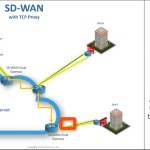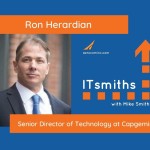October 24, 2013 01:40 PM ET
Computerworld – Verizon’s Enterprise Solutions division today launched a cloud service that automatically collects patient biometric data via wireless-enabled devices, allowing clinicians to better keep track of their patient’s health via a web portal.
Verizon’s new Converged Health Management service can aggregate patient health data from from their homes or when traveling from a Web-based portal.
“Patient outcomes are often the result of what individuals do when they are away from their care providers,” said Dr. Peter Tippett, Verizon’s chief medical officer.
The Converged Health Management service can record health information such as blood pressure, oxygen saturation levels and glucose levels. Patient data is automatically transmitted through a wireless connection to a secure server that resides in Verizon’s HIPAA-ready (Health Insurance Portability and Accountability Act) cloud for analysis by the patient’s clinician.
The service also includes a reward system, such as money-saving coupons, to motivate patients to make healthier lifestyle choices. Patients can access their own information and find personalized healthy lifestyle suggestions via the Converged Health Management smartphone app or Web portal.
The patient data can be accessed through either a Verizon proprietary interface portal or a third-party electronic medical record (EMR) platform, according to Tippett.
“We’ve talked to 20 or 30 hospitals in the last month and some say they want to use our portal for their clinicians and others say they’d never use our portal; they want to use their EMR,” Tippett said.
The cloud service, which has received Food and Drug administration clearance, is enabled to collect data from four types of remote monitoring devices: a blood pressure cuff, a weight scale, a pulse oximeter and a glucose meter. Tippett said the number of devices that can be connected to the service will grow over time.
Clinicians can use the data from the monitoring devices to identify trends and changes in patient health status, especially those conditions signaling a need to intervene quickly, which has the potential to transform healthcare while also lowering medical costs.
For example, a patient with congestive heart failure may show signs of water weight gain over time, a red flag for physicians, indicating that the patient needs to lower sodium intake in order to avoid hospitalization.
Tippett noted that half of all patients over the age of 65 are diabetics or show early signs of the disease. Having the ability to track glucose level trending data can help a physician determine if a patient is eating properly and using insulin. By keeping glucose levels under control, diabetics can avoid consequences of their disease, such as heart failure and blindness.
“It allows the patient and physician to review a dashboard, and the clinician can prioritize how their patients are doing,” Tippett said. “Instead of deciding how we can change a patient’s behavior, this platform provides tools to do that.”
The Converged Health Management website also provides patients with training materials and videos on how the service works.
Verizon expects the Converged Health Management service to be purchased by U.S. health insurance companies, integrated delivery networks, hospitals, and large provider groups and self-funded employers that are looking for ways to monitor at-home care compliance, engage patients in healthier lifestyle choices and reduce hospital readmissions.






